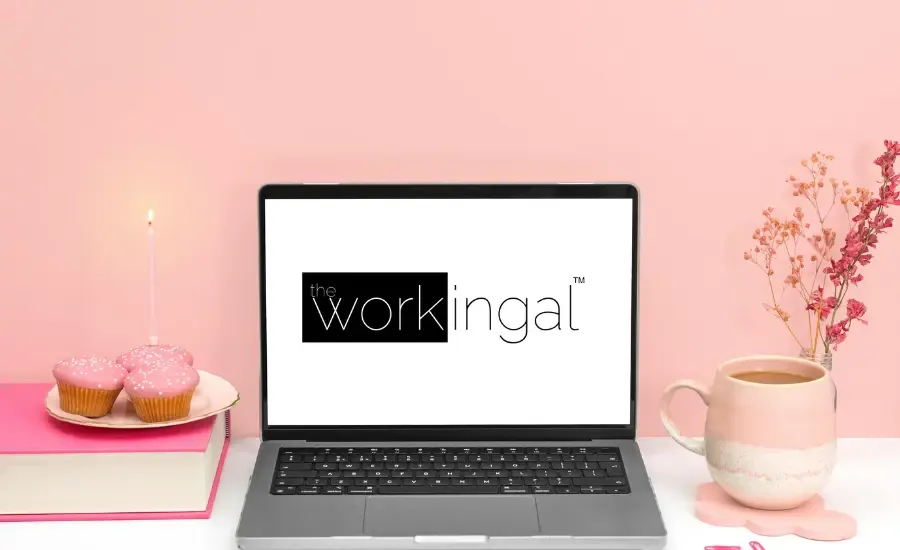You're scrolling through LinkedIn at midnight (again), watching former classmates get promoted while you're stuck in the same role. You've been working hard, showing up consistently, doing good work. So why does it feel like everyone else is moving forward while you're standing still?
Here's what nobody tells you: hard work isn't enough. Showing up isn't enough. If you want to advance in your career, earn more, and feel genuinely fulfilled by your work, you need to make one critical investment that most people overlook.
No, it's not an expensive executive coaching program or another networking happy hour. It's not even a graduate degree (though that might be part of it). The best investment you can make for your career is investing in yourself—strategically, intentionally, and continuously.
As Warren Buffett famously said, "The most important investment you can make is in yourself." But what does that actually mean in practical terms? And how do you invest in yourself when you're already stretched thin with work, life, and everything in between? Let's break it down.
Why Investing in Yourself Is the Ultimate Career Move
According to research from the World Economic Forum, 50% of all employees will need reskilling by 2025 as technology and workplace demands evolve. But here's the kicker: only 34% of workers have engaged in any professional development in the past year.
That gap? That's your opportunity.
When you invest in yourself—in new skills, knowledge, and capabilities—you're not just keeping up with industry changes. You're positioning yourself as someone who's adaptable, growth-oriented, and valuable. These are the qualities that lead to promotions, salary increases, and career opportunities that align with your goals.
But investing in yourself isn't just about climbing the corporate ladder or earning more money (though those are nice side effects). It's about building confidence, expanding what you're capable of, and creating options for yourself. When you develop new skills, you're no longer limited to one career path or dependent on one employer. You're building career security through capability, not just company loyalty.
What "Investing in Yourself" Actually Means
Let's clear up a common misconception: investing in yourself isn't about expensive spa days, designer work wardrobes, or #selfcare bubble baths.
Those things are nice, and yes, taking care of your wellbeing matters. But when we talk about career investment, we're talking about building skills, knowledge, and capabilities that compound over time.
Think of it this way: buying a $200 blazer is a purchase. Taking a $200 course that teaches you data analysis or public speaking is an investment. One makes you look professional. The other makes you more valuable.
The difference? Return on investment. The blazer depreciates the moment you wear it. The skill appreciates every time you use it, potentially leading to higher earnings, better opportunities, and more career satisfaction for years to come.
5 Strategic Ways to Invest in Your Career Growth
1. Identify and Fill Your Skills Gaps
Get honest about where your skills are holding you back, then systematically address those gaps. You goal is not to become perfect at everything but identify the specific skills that are preventing you from reaching your next career goal and strategically developing them.
How to Identify Your Gaps:

- Look at job descriptions for roles you want. What skills do they require that you don't have?
- Ask for feedback from managers, mentors, or colleagues you trust
- Notice patterns in your work. What tasks do you avoid or struggle with?
- Review your last performance review. What areas were noted for improvement?
Here's a personal example: Early in my career as a translator, I was technically skilled at the work itself. I had the degree, the experience, the language proficiency. But I struggled with client negotiations, often accepting lower rates than I deserved because I didn't know how to confidently discuss pricing.
That skills gap was costing me money every single project. So I invested in a negotiation course. Not another translation seminar (I already knew how to translate), but training in an area where I was weak. That one investment changed my earning potential significantly.
What are the Steps To Put That Into Action?
- Choose ONE skill gap that's actively holding you back
- Find a course, book, mentor, or resource to address it (many are free or low-cost)
- Commit to 30 days of focused learning
- Apply the skill immediately in your work
2. Learn Skills Adjacent to Your Expertise
Don't just go deeper in what you already know—expand laterally into related skills that make you more versatile and valuable. If you're a marketing professional, you probably already know marketing. Taking another social media marketing course might feel productive, but it's unlikely to dramatically change your career trajectory. But learning data analytics, project management, or basic web development? Those adjacent skills make you significantly more marketable.
According to LinkedIn's Workplace Learning Report, professionals with diverse skill sets are more likely to be promoted and earn higher salaries than those who specialize narrowly in one area.
Examples by Role:
- If you're in finance: Learn data visualization, presentation skills, or strategic communication
- If you're in HR: Develop skills in data analytics, change management, or employment law
- If you're in tech: Build business acumen, stakeholder management, or technical writing
- If you're in sales: Learn CRM systems, marketing automation, or customer success principles
The goal isn't to become mediocre at everything. It's to become exceptional at your core skill while developing complementary capabilities that make you irreplaceable.
3. Invest in Communication and Leadership Skills
Prioritize "soft skills" that pay dividends across every aspect of your career. Here's something nobody tells you early in your career: technical skills might get you hired, but communication and leadership skills get you promoted. Research from Harvard University, the Carnegie Foundation, and Stanford Research Center found that 85% of job success comes from well-developed soft skills and people skills, while only 15% comes from technical skills and knowledge.
Yet most professionals invest almost exclusively in technical training and ignore the skills that actually drive career advancement.
High-Impact Communication Skills:
- Public speaking and presentation skills
- Writing clearly and persuasively (emails, reports, proposals)
- Active listening and asking powerful questions
- Giving and receiving feedback constructively
- Negotiation and conflict resolution
Leadership Skills Worth Developing:
- Project management and organization
- Delegation and team coordination
- Strategic thinking and decision-making
- Emotional intelligence and self-awareness
- Influencing without authority

You don't need to be in a management role to develop leadership skills. In fact, building these capabilities before you're promoted often positions you as the obvious choice when opportunities arise.
Where to Start:
- Toastmasters (public speaking practice, typically $50-100 for 6 months)
- Books like "Crucial Conversations" or "The First 90 Days"
- YouTube channels on leadership and communication (check our YouTube channel for career talks!)
- Volunteer to lead a project at work for real-world practice
4. Build Your Professional Network Strategically
Invest time in building genuine relationships with people who can support, challenge, and expand your thinking. Networking has a reputation for being awkward and transactional, but when done right, it's one of the highest-return investments you can make. Research shows that 85% of jobs are filled through networking, and professionals with strong networks earn more and advance faster than those without them.
But effective networking isn't about collecting business cards or connecting with strangers on LinkedIn. It's about building authentic relationships with people who can provide:
- Mentorship: People ahead of you who can guide your career decisions
- Peer support: Colleagues at your level to share challenges and strategies
- Opportunity awareness: People who know about openings or projects before they're public
- Skill development: People who can teach you or collaborate on new skills
Networking is a long-term investment. The relationships you build today might not pay off for months or years, but when they do, the return is exponential.
5. Pursue Formal Education (When It Makes Strategic Sense)
Consider certifications, courses, or degrees that directly advance your career goals—but be strategic about the investment. I'll be honest: not everyone needs a master's degree or expensive certification (and I have plenty of those!). But for some careers, formal credentials matter significantly. The key is being strategic about when and what education is worth the investment.
When Formal Education Makes Sense:
- It's required for the roles you want (e.g., MBA for certain leadership positions, CPA for accounting advancement)
- It provides access to a valuable network (executive education programs, industry certifications)
- It fills a critical knowledge gap you can't easily fill elsewhere
- The ROI is clear (projected salary increase justifies the cost and time)
Alternatives to Traditional Degrees:
- Professional certifications: PMP (Project Management), Google Analytics, HubSpot certifications
- Online courses: Coursera, LinkedIn Learning, Udemy (often $10-50)
- Industry workshops and bootcamps: Intensive skill-building in weeks instead of years
- Company-sponsored training: Many employers offer professional development budgets—use them!
When I decided to pursue a master's degree, it wasn't because I needed another credential. It was strategic: I wanted to expand my service offerings beyond the traditional I offered and that degree gave me the technical skills to do that, and it directly expanded my business capabilities (and now, I am a proud business owner!).
The question isn't "Is education valuable?" It's "Is this specific education valuable for my specific career goals right now?"
How to Start Investing in Yourself (Even on a Tight Budget)
One of the biggest myths about professional development is that it requires significant money. While some investments do cost (and are worth it), many of the most impactful ways to invest in yourself are free or low-cost.
Free or Low-Cost Options:
- YouTube and podcasts: Thousands of hours of expert teaching available free
- Library resources: Books, audiobooks, and often free access to LinkedIn Learning
- Company benefits: Professional development budgets, tuition reimbursement, mentorship programs
- Free trials: Skillshare, MasterClass, and other platforms offer trial periods
- Community resources: Toastmasters, professional associations, industry meetups
- Shadowing and informational interviews: Learn from people already doing what you want to do
Time Investment Over Money:
The real investment isn't always money—it's time and consistency. Reading for 20 minutes before bed. Listening to a podcast during your commute. Taking one online course per quarter. These small, consistent investments compound significantly over time.
The Mindset Shift That Changes Everything
Here's the truth about investing in yourself: it requires a fundamental mindset shift from consumer to builder.
Most people think: "When I get the promotion, then I'll develop leadership skills." Or "When I have more money, then I'll invest in that course." They're waiting for external circumstances to change before they invest in internal growth.
But successful professionals flip that script. They think: "I'll develop leadership skills so I'm ready when opportunities arise." Or "I'll invest in this skill now, which will enable me to earn more later."
They don't wait to be chosen. They prepare to be ready.

This shift from passive to proactive changes everything. You're no longer dependent on your company's training programs or waiting for someone to develop you. You're taking ownership of your career growth, which is the most empowering position you can be in.
The best investment you can make isn't Bitcoin or real estate or the stock market (though those are great too). It's investing in your own capabilities, knowledge, and skills. Unlike other investments, this one can never be taken away from you. Economic recessions happen. Companies downsize. Industries shift. But the skills you develop, the relationships you build, and the knowledge you gain? Those are yours forever.
Start small. Pick one area where you know you're weak or where a new skill could open doors. Dedicate 30 days to focused learning. Apply it immediately. Then move to the next skill.
You don't need to invest thousands of dollars or quit your job to go back to school. You just need to commit to continuous growth and recognize that the person you're investing in—yourself—has the highest potential return of any investment you'll ever make. What's one skill you've been putting off learning? What would change in your career if you finally developed it? Let us know in the comments—we'd love to hear what you're working on.
How much should I invest in professional development annually?
Financial experts typically recommend investing 3-5% of your annual income in professional development, but this varies based on your career stage and goals. Early career professionals might invest more (proportionally) to build foundational skills, while experienced professionals might invest in high-level executive education. The key is consistency—even small, regular investments compound over time.
How do I know which skills to prioritize?
Start by analyzing job descriptions for roles you aspire to. What skills appear repeatedly that you don't have? Ask your manager or mentor what they see as your biggest growth opportunity. Look at where you struggle or procrastinate at work—those avoidance patterns often indicate skills gaps. Finally, consider what skills would make you more versatile and valuable across multiple roles or companies.
Is it worth investing in myself if I might leave my current job?
Absolutely. In fact, this is one of the best reasons to invest in yourself. Skills are portable—they go with you wherever your career takes you. Unlike company-specific knowledge, broadly applicable skills increase your market value and give you more career options. When you invest in yourself, you're building career security regardless of what happens with any single employer.
How can I find time for professional development when I'm already overwhelmed?
Start smaller than you think you need to. Even 15 minutes daily adds up to over 90 hours annually. Listen to podcasts during your commute. Read before bed. Take one online course per quarter instead of trying to do everything at once. The key is consistency over intensity—small, regular investments compound more effectively than sporadic bursts of effort.
 THE WORKING GAL
THE WORKING GAL





